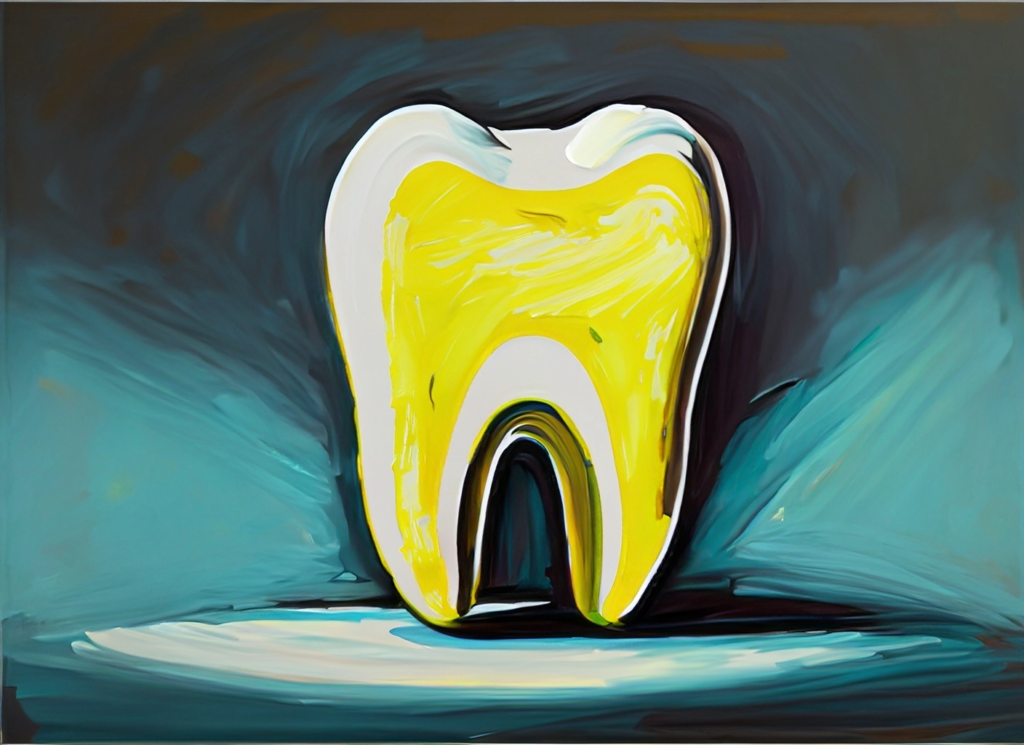
By Dr Arjun Raj, Module Leader and Lecturer in Business, FSB Croydon
I am Dr Arjun Raj, a dentist with over 8 years of clinical experience. As a Lecturer, I am attuned to the various health and dental hygiene challenges that affect us all. My aim is to curate a series of health-related articles that I believe will offer valuable insights for both students and the teaching community. Part 1 below is targeted to lecturers and Part 2 is for students:
Maintaining Excellent Dental Hygiene:
PART 1: A Lecturers’ Guide
Teaching can be a demanding job, which requires long hours of talking and engaging with students while maintaining a professional demeanour. Amid all the responsibilities and obligations, it’s easy for teachers and lecturers to overlook their dental health. However, maintaining good oral health is crucial for overall health and well-being in addition to having a wonderful smile. In this blog, we will review some important and crucial dental hygiene tips tailored especially for teachers.
Stay Hydrated
As an educator, you may often find yourself speaking for long periods of time. It’s important to stay hydrated for both your overall health and oral hygiene. Drinking water helps remove food particles and harmful bacteria that can cause bad breath and tooth decay.
Snack Wisely
It’s not always possible for teachers to take extended breaks in between lessons. Choose fruits, veggies, or nuts instead of sugary or acidic snacks when you’re snacking. Avoiding sugary foods on a regular basis can help prevent cavities.
Mind Your Coffee and Tea
Teachers rely on coffee and tea to stay alert. These beverages, however, may cause discolouration of teeth and may also lead to tooth sensitivity. Try to limit your intake of these beverages or use a straw to reduce contact with your teeth to help lessen this.
Oral Care Essentials
It is crucial to keep a consistent oral hygiene practice. Use fluoride toothpaste to brush your teeth at least two times every day. Every three to four months, or sooner if the bristles are frayed, be sure to replace your toothbrush. Daily flossing is also crucial for removing plaque from between teeth.
Consider Sugar-Free Gum
It can be convenient to chew sugar-free gum to stimulate saliva production, which helps neutralise acids and protect your teeth. The sugar alternative xylitol, which can inhibit the growth of harmful bacteria, should be sought out in place of sugar.
Dental Checkups
Do not skip routine dental check-ups despite your busy schedule. By having biannual dental checkups, you can identify any problems before they worsen and become more expensive to resolve.
Manage Stress
Teaching may be stressful, and stress has many different manifestations, including bruxism, which is the grinding and clenching of the teeth. Stress can also induce gum problems such as bleeding of gums and acute gingivitis which may lead to other periodontal diseases. To alleviate these conditions and safeguard your teeth, think about stress-reduction methods like yoga, meditation, or deep breathing exercises.
Set an Example
Teachers have a special chance to favourably affect the minds of
students. You can teach your students the value of oral hygiene by setting an example for them by maintaining proper dental hygiene.
Teaching is a noble profession, and educators play a vital role in shaping the future. Setting your own health, especially your oral hygiene, as a priority is crucial if you want to keep doing well in your job. These pointers can help you keep a cheerful and healthy smile while encouraging your students to do the same. Remember, a healthy smile goes a long way in making a lasting impression in and out of the classroom.
Maintaining Excellent Dental Hygiene:
PART 2: A Students’ Guide
The lives of students’- especially adult students – are frequently hectic, with balancing employment, family, and academic obligations among others. It may be quite difficult for them to maintain good dental health because of their busy schedule. Regular dental checkups may be neglected due to time constraints, which can delay the early detection of oral health problems and preventive therapy from being received. Furthermore, bad eating habits and poor dental hygiene might result from the stress and strain of being an adult student. Financial difficulties – and cost fears – may also make it difficult to afford dental care, which could lead to ignored or delayed procedures. Adult students may experience long-term oral health issues as a result of these restrictions, which may eventually result in more significant dental issues. This part of the blog will act as a guide for you to maintain good oral health.
Brush properly
Brushing your teeth is the primary way of maintaining one’s health. Brush at least twice a day with a medium bristles toothbrush and fluoride paste. Brush in a circular motion keeping your brush at a 45-degree angle. Make sure you cover all the surfaces of the tooth including the chewing surface. Make gargling mandatory in your life, make sure to gargle every meal.
Floss and use of mouthwash
Food fragments and grime between teeth must be removed with flossing. Take an 18-inch piece of dental floss. Gently move the floss up and down between your teeth while wrapping it around each tooth, as this may damage your gums, never snap or force the floss.
Mouthwash comes in many variations, such as fluoride, antibacterial, and cosmetic versions. Select a mouthwash that is appropriate for you by consulting your dentist. Use the product according to the directions on the label.
Diet and Hydration
Water removes microorganisms and food particles from the mouth, maintaining dental hygiene. Avoid consuming sugary and acidic foods and beverages in excess as they might cause tooth damage. Eat a balanced diet that is high in fresh produce, whole grains, lean proteins, and healthy fats. Gum without sugar can increase salivation, which helps wash away bacteria and neutralise acids in the mouth.
Use of mouthguards
75% of students are into sports. Even adult students find stress relief by engaging in different kinds of sports and physical workouts. Some may have the habit of grinding teeth at sleep, this may be due to childhood habits or stress (more about this will be discussed in coming parts of the blog). To avoid damage to your teeth while playing or by grinding your tooth you might want to wear a mouth guard. The finest protection is offered by custom-made mouthguards from your dentist.
Registering with NHS and Regular Checkups
For preventive care, routine dental appointments are crucial. Dentists are able to spot problems early on and take action to fix them before they worsen. Plaque and tartar accumulation are removed during dental cleanings because they can cause cavities and gum disease. Seek immediate dental care if you feel discomfort, develop bleeding or swelling, or if your oral health changes. Treatment postponed can result in more serious and expensive issues.
For this, the first thing to be done is to get yourself registered in an NHS dental practice. Registering with an NHS dentist is just as important as registering with an NHS GP. Adult students can apply for discounts and benefits from NHS for dental treatments. Talk to your registered dentist to learn more about it.
Avoid excessive drinking and smoking:
Gum disease and oral cancer are two conditions that might develop as a result of smoking and binge drinking. To break these habits, think about getting help and your dentist can help you in the cessation of such habits.
On-the-Go Oral Hygiene:
Students tend to travel a lot, for such scenarios where you can’t brush at home, always carry a travel toothbrush and a small tube of toothpaste. In an emergency, sugar-free mints or gum can assist in freshening your breath and increase salivation.
Resources for Education:
As students, you should update yourself on all possible knowledge. Reading articles, viewing videos, and going to seminars or webinars on the subject will help you stay knowledgeable about dental health.
You’ll be better able to maintain excellent oral health while a student if you carefully follow these comprehensive instructions. Remember that a healthy smile improves your quality of life overall as well as your self-confidence and physical well-being. You are, after all, tomorrow’s future.
In summary, it is evident that maintaining dental health is extremely important for adult learners. Neglecting dental health is not an option, even when the responsibilities of adult life—work, family, and education—can be too much to handle. A healthy smile is a reflection of our confidence and general well-being, not just our physical attributes. Our everyday routines, relations at work, and self-esteem can all be impacted by poor dental health. Students who prioritise dental health are investing in their own future, as they will be able to meet life’s obstacles with a confident and radiant smile. Let’s continue to put our dental health first and keep it that way because it leads to success in both personal and professional endeavours.
Part 1 Bibliography
Cook, R., 2006. Awareness and Influence in Health and Social Care: How you can really make a difference. Radcliffe Publishing.
Detels, R. ed., 2015. Oxford textbook of global public health. Oxford Textbook.
Hanau, K., 2014. Periodontal health awareness and behavior among Iraqi university lecturers in non-medical colleges. Journal of Al-Rafidain University College For Sciences (Print ISSN: 1681-6870, Online ISSN: 2790-2293), (1), pp.215-235.
Newman, M.G., Essex, G., Laughter, L. and Elangovan, S., 2020. Newman and Carranz
a’s Clinical Periodontology for the Dental Hygienist. Elsevier Health Sciences.
Sbaraini, A., Carter, S.M., Evans, R.W. and Blinkhorn, A., 2012. Experiences of dental care: what do patients value?. BMC health services research, 12(1), pp.1-11.
Smith, T.A. and Heaton, L.J., 2003. Fear of dental care: are we making any progress?. The Journal of the American Dental Association, 134(8), pp.1101-1108.
Michie, S., Rumsey, N., Fussell, A., Hardeman, W., Johnston, M., Newman, S. and Yardley, L., 2008. Improving health: changing behaviour. NHS health trainer handbook. London: Department of Health and British Psychological Society.
Newman, M.G., Takei, H., Klokkevold, P.R. and Carranza, F.A., 2011. Carranza’s clinical periodontology. Elsevier health sciences.
Website: American Dental Association. (https://www.ada.org)
Website: Colgate. (https://www.colgate.com)
Website: WebMD. (https://www.webmd.com/oral-health)
Website: Oral Health Foundation. (https://www.dentalhealth.org)
Website: Centers for Disease Control and Prevention. (https://www.cdc.gov/oralhealth)
Website: National Institute of Dental and Craniofacial Research. (https://www.nidcr.nih.gov)
Website: Health.gov. (https://www.health.gov/oral-health)
Part 2 Bibliography
Cook, R., 2006. Awareness and Influence in Health and Social Care: How you can really make a difference. Radcliffe Publishing.
Detels, R. ed., 2015. Oxford textbook of global public health. Oxford Textbook.
Leggett, H., Vinall-Collier, K., Csikar, J. and Veronica Ann Douglas, G., 2023. Barriers to prevention in oral health care for english NHS dental patients: a qualitative study of views from key stakeholders. BMC Oral Health, 23(1), pp.1-11.
Loster, Z., Gut, A., Zawada, M., Szczeklik, K., Jakubik, A. and Pytko-Polończyk, J., 2018. Development of dental awareness concerning oral health behavior among students of selected universities in Krakow. Przegląd Lekarski, 75(11).
Sibanda, L., Niven, V. and Gallagher, J.E., 2023. Oral health and community nursing: a practical guide to the Delivering Better Oral Health toolkit for adults. British Journal of Community Nursing, 28(8), pp.398-403.
Smith, T.A. and Heaton, L.J., 2003. Fear of dental care: are we making any progress?. The Journal of the American Dental Association, 134(8), pp.1101-1108.
Newman, M.G., Essex, G., Laughter, L. and Elangovan, S., 2020. Newman and Carranza’s Clinical Periodontology for the Dental Hygienist. Elsevier Health Sciences.
Michie, S., Rumsey, N., Fussell, A., Hardeman, W., Johnston, M., Newman, S. and Yardley, L., 2008. Improving health: changing behaviour. NHS health trainer handbook. London: Department of Health and British Psychological Society.
Newman, M.G., Takei, H., Klokkevold, P.R. and Carranza, F.A., 2011. Carranza’s clinical periodontology. Elsevier health sciences.
Website: American Dental Association. (https://www.ada.org)
Website: Colgate. (https://www.colgate.com)
Website: WebMD. (https://www.webmd.com/oral-health)
Website: Oral Health Foundation. (https://www.dentalhealth.org)
Website: Centers for Disease Control and Prevention. (https://www.cdc.gov/oralhealth)
Website: National Institute of Dental and Craniofacial Research. (https://www.nidcr.nih.gov)
Website: Health.gov. (https://www.health.gov/oral-health)
Stay tuned for Dr Raj’s next blog on ‘Maintaining Excellent Dental Hygiene: PART 3: Proper Brushing Techniques.’
